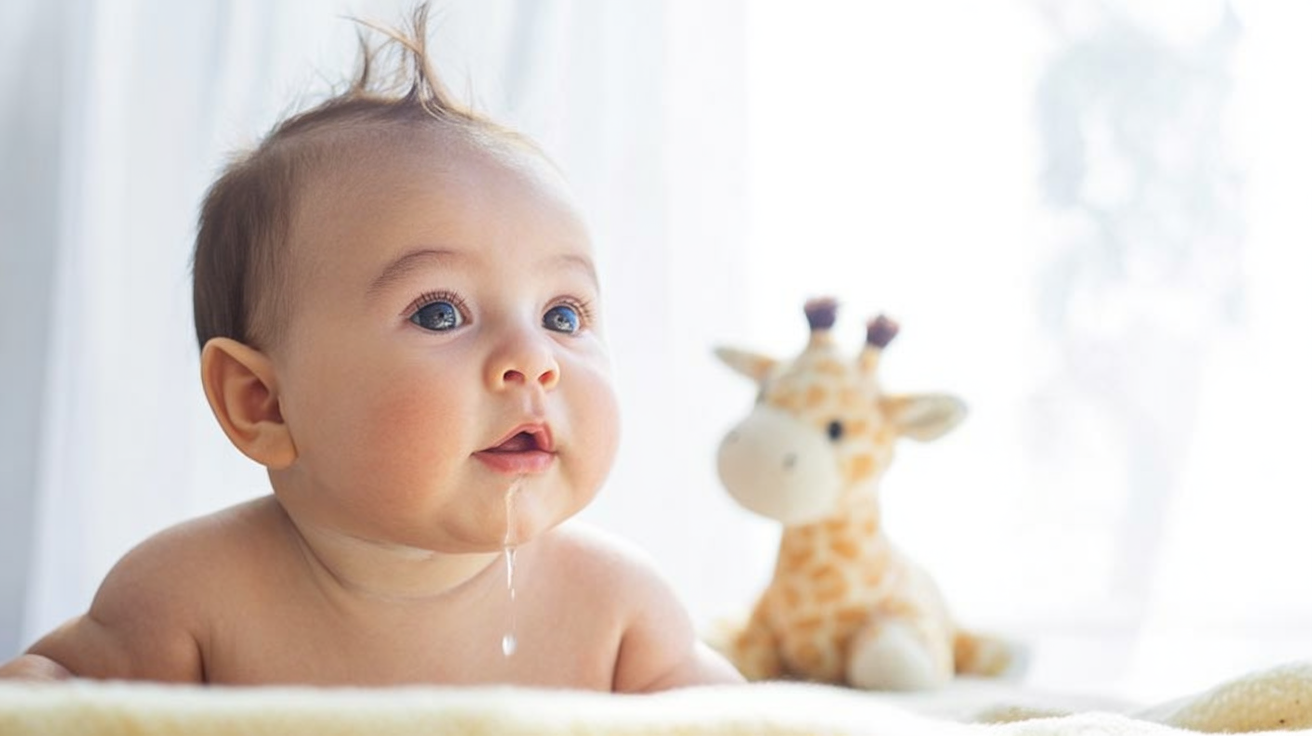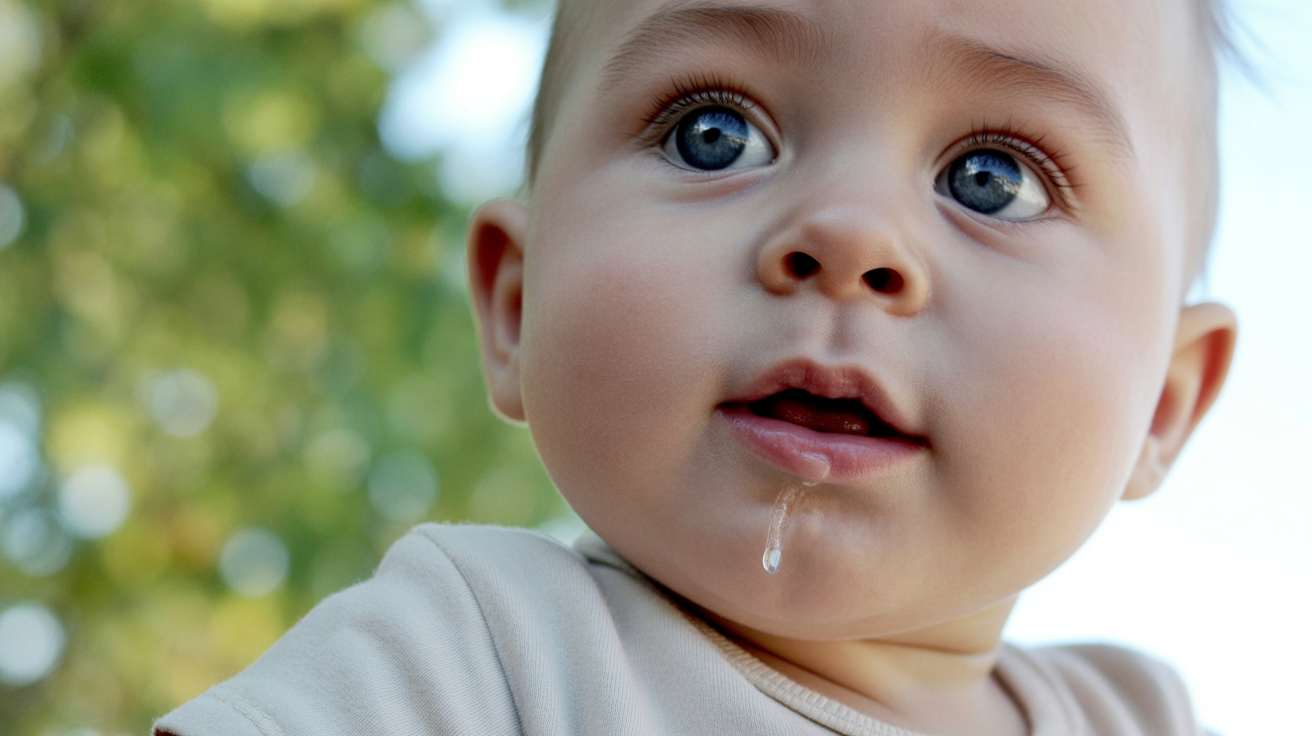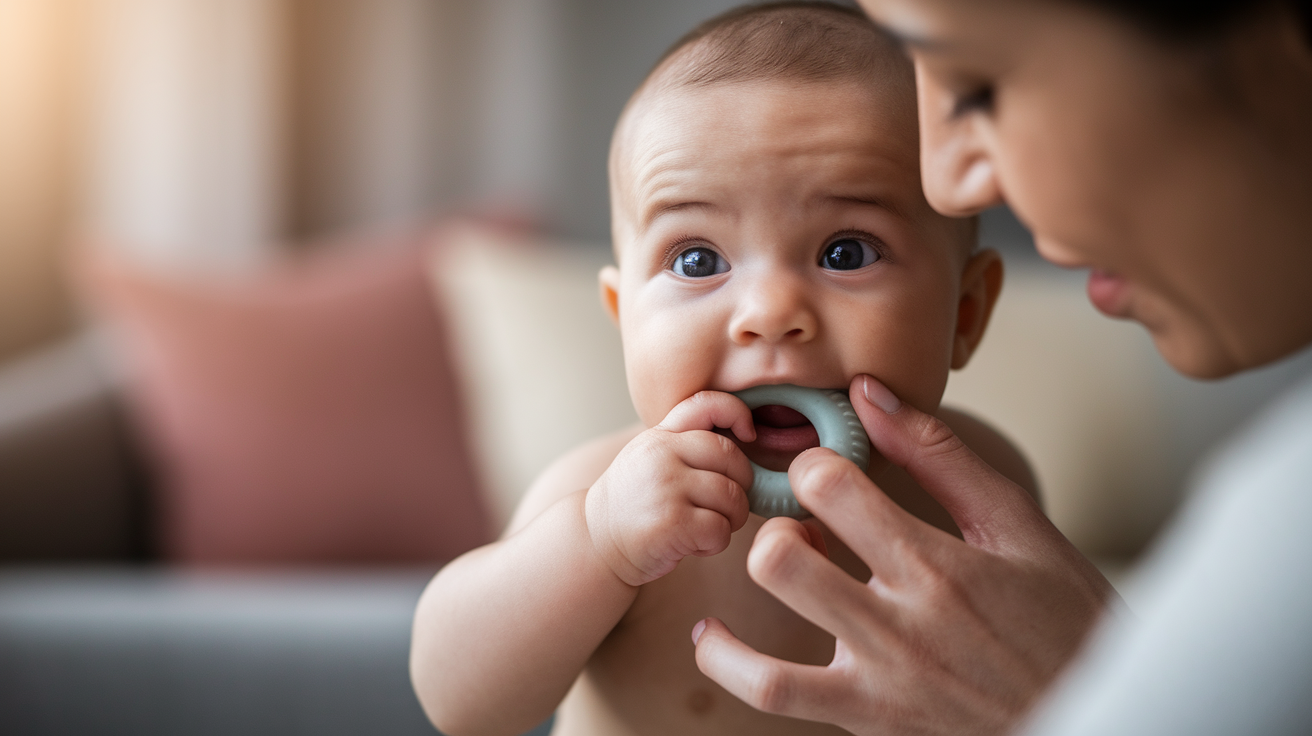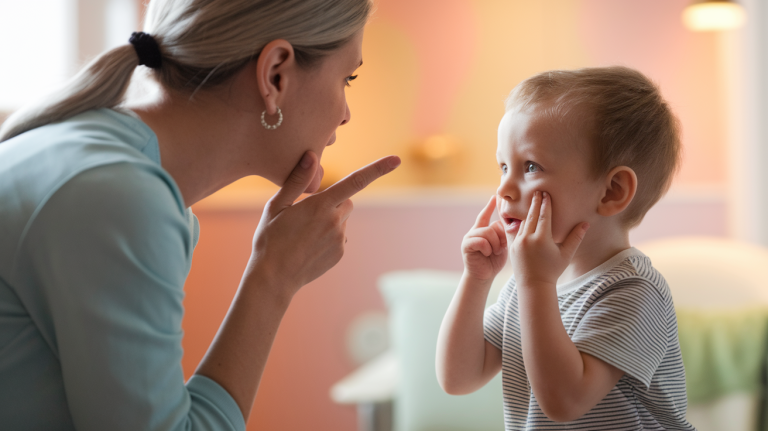When Do Babies Stop Drooling? Age, Milestones & When to Worry

If you’re a new parent, you’ve probably noticed your little one seems to drool quite a bit.
I remember when my kids were babies, I went through so many bibs and felt like I was constantly wiping drool!
Don’t worry, this is completely normal. Drooling is a natural part of your baby’s growth and development, often connected to teething and the development of their salivary glands.
In this guide, I’ll share what I’ve learned about the typical age ranges when babies start and stop drooling, what this means for your child’s development, and when you might need to talk to your pediatrician about excessive drooling.
If you are dealing with your first baby or just want reassurance about what’s normal, understanding the drooling timeline can help put your mind at ease and know when professional guidance might be helpful.
When Do Babies Start Drooling?
Most babies begin drooling around 2 to 4 months old. This timing isn’t random; it happens because their salivary glands are starting to produce more saliva.
At this age, babies haven’t yet learned how to swallow all that extra saliva, so it ends up drooling out of their mouths.
The increase in drooling also often coincides with teething, which typically begins around 4 to 6 months. When babies are teething, their bodies produce even more saliva to help soothe their sore gums.
This is why you might notice your baby drooling more when they’re cutting new teeth. Drooling is a good sign that your baby is developing normally. It shows that:
- Their salivary glands are working properly
- They’re getting ready for solid foods (saliva helps break down food)
- Their mouth muscles are developing
- They’re exploring the world by putting things in their mouth
Drooling also helps with your baby’s oral motor skills. As they learn to control their mouth muscles, they’ll eventually figure out how to swallow more of their saliva.
This process is important for later skills like eating solid foods and speaking clearly.
When Do Babies Usually Stop Drooling?

Most babies start drooling less between 15 to 18 months old. By this age, they’ve usually learned better muscle control and can swallow most of their saliva. However, every baby is different, and some may take a bit longer.
Several factors can affect how long your baby drools:
- Teething schedule: Babies who get teeth later may drool longer
- Muscle development: Some babies take more time to develop good mouth muscle control
- Individual differences: Every child develops at their own pace
- Pacifier use: Extended pacifier use might affect when drooling stops
Don’t be concerned if your toddler still drools occasionally, especially when they’re teething, sick, or focused on something. This is still normal.
I’ve seen many parents worry about this, but in my experience, most children naturally outgrow excessive drooling as they develop.
Drooling in Babies: What’s Normal vs. What’s Not
It can be hard to know what counts as “too much” drooling. As a parent myself, I understand this concern completely.
| Normal Drooling | Excessive Drooling (May Need Attention) |
|---|---|
| Going through several bibs a day | Constant, heavy drooling that soaks through clothes quickly |
| Having wet shirts from drooling | Drooling that continues well past 2 years old |
| Increased drooling during teething | Skin irritation or rashes around the mouth that won’t heal |
| More drooling when your baby is sick or has a stuffy nose | Difficulty eating or swallowing |
This table format makes it easy to quickly compare what’s typically normal versus signs that might warrant a conversation with your pediatrician.
Common Causes of Excessive Drooling

When I first noticed my baby drooling more than usual, I wondered what could be causing it. While most drooling is perfectly normal, there are several reasons why some babies might drool more than others.
Understanding these causes helped me know when to relax and when to pay closer attention. Let me walk you through the most common reasons for excessive drooling that I’ve encountered.
1. Teething
This is the most common cause of increased drooling. When new teeth are coming in, your baby’s gums become swollen and sore. Their body produces extra saliva to help ease the discomfort.
2. Oral Motor Delay
Some babies take longer to develop the muscle control needed for swallowing. This can be related to speech development or swallowing difficulties. If your baby seems to have trouble with feeding or isn’t meeting speech milestones, this might be a factor.
3. Infections
Throat infections, ear infections, or mouth infections can cause increased drooling. These conditions can make swallowing painful or difficult, leading to more saliva buildup.
4. Allergies or Reflux
Seasonal allergies or acid reflux can cause your baby to produce more saliva. Reflux can also make swallowing uncomfortable, leading to more drooling.
5. Neurological Conditions
In rare cases, excessive drooling can be a sign of neurological conditions that affect muscle control. This is uncommon, but it’s something doctors will consider if drooling is severe and persistent.
How to Treat or Manage Excessive Drooling
Once I understood what might be causing my baby’s drooling, I wanted to know what I could do about it. The good news is that there are plenty of practical ways to manage drooling at home.
Most of the time, simple care techniques can make a big difference in keeping your baby comfortable and preventing skin problems. Here’s what I’ve learned works best.
1. Home Care Tips
Here are some practical strategies I’ve found helpful for managing drooling:
Use bibs regularly: Keep your baby’s clothes dry and prevent skin irritation by using absorbent bibs throughout the day. I always kept several on hand for quick changes.
Practice good skin care: Gently wipe away drool with a soft cloth and apply a protective barrier cream around your baby’s mouth and chin to prevent rashes. I learned this the hard way after my first child developed a painful rash!
Encourage cup drinking: Once your baby is old enough (around 6 months), encourage drinking from a cup rather than always using a bottle. This helps develop better mouth muscle control.
Provide appropriate toys: Give your baby safe teething toys to help with gum discomfort and encourage proper mouth movements.
2. When to Consult a Pediatrician
Contact your doctor if:
- Drooling suddenly increases dramatically
- Your baby shows signs of difficulty swallowing or eating
- There are persistent skin rashes from drooling
- Your child is over 2 years old and still drools heavily
- You notice other concerning symptoms along with excessive drooling
3. Possible Therapies
If there’s an underlying issue causing excessive drooling, your pediatrician might recommend:
- Speech therapy to help with oral motor skills
- Occupational therapy for feeding difficulties
- Treatment for any underlying medical conditions
What Happens If Chronic Drooling Is Left Untreated?
While normal drooling isn’t a concern, chronic excessive drooling can lead to some problems, like:
Skin Irritation and Rash
Constant moisture around the mouth can cause painful rashes and skin breakdown. This can be uncomfortable for your child and may lead to infections if not properly managed.
Speech and Feeding Challenges
If excessive drooling is related to oral motor delays, it might affect your child’s ability to speak clearly or eat certain foods. Early intervention can help address these issues.
Social and Emotional Impact
As children get older, excessive drooling can become socially challenging. Other children might tease them, which can affect their self-esteem and social interactions.
Final Thoughts
Remember, drooling is a normal part of your baby’s development. Most babies will naturally stop drooling excessively as they grow and develop better muscle control.
The key is knowing what’s normal for your child and when to seek help.
Trust your instincts as a parent, I can’t stress this enough. If something seems off about your baby’s drooling patterns, don’t hesitate to discuss it with your pediatrician.
Regular check-ups are a great time to bring up any concerns you might have. I always found that my pediatrician was happy to address even my smallest worries.
Most importantly, try not to stress too much about drooling. It’s just one of those messy but normal parts of raising a baby.
Still wondering about something specific with your baby’s drooling? Let me know in the comments below, and I’ll do my best to help you out!






